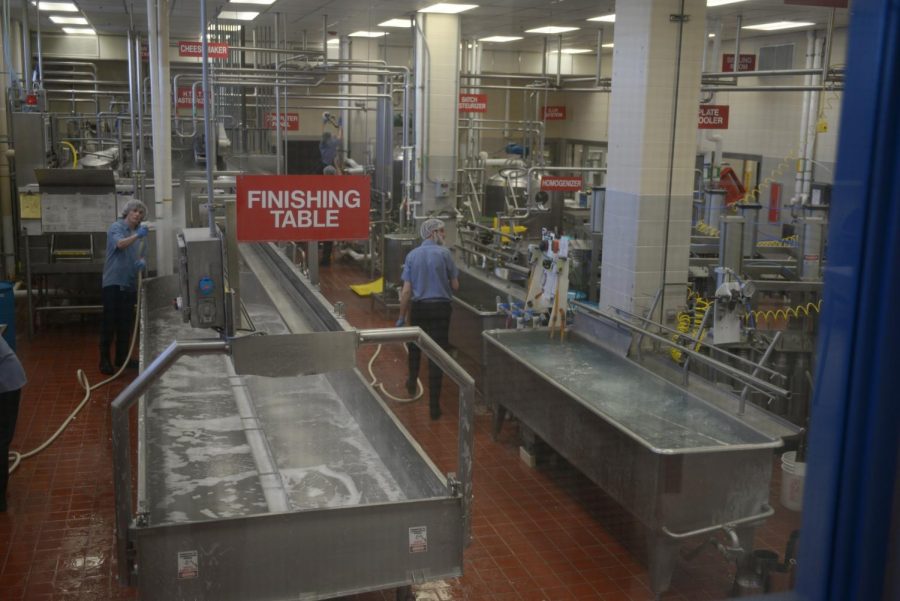Ferdinand’s to propose creamery expansion
Shop applies for facility expansion to increase production
JULIA PRESTON | DAILY EVERGREEN FILE
Ferdinand’s finishing table drains and salts curds during the cheese-making process.
January 19, 2018
WSU Creamery management is pushing for an expansion to increase production after Cougar Gold cheese sold out three weeks earlier than previous years.
The plant has reached its full capacity, making it harder to meet the demand for cheese each year, WSU Creamery Manager John Haugen said.
The management at Ferdinand’s understands the need to increase production and are currently creating a proposal for the university.
“There are three main products the creamery provides: cheese, ice cream and practical work experience to college students,” Haugen said.
The current proposal presents a plan to finish the equipment in the new milk receiving bay located in the Food Quality Building, Haugen said.
The creamery is currently producing around 250,000 cans of cheese per year, 80 percent of which is Cougar Gold cheese, according to WSU Creamery website.
The proposal for the new equipment will allow the creamery to increase production by 80 percent, which is over 400,000 cans of cheese per year, Haugen said. The large increase in production will cause the creamery to either buy or rent more storage space to store cheese during the year, he added.
The current milk receiving area in the creamery will be available for raw milk processing. This will open up the facility to add a larger cheese vat and finishing table, Haugen said.
Expanding the creamery is not without it’s challenges. Increasing production will make it difficult to manage due to the focus on practical work experience, Haugen said. The plant’s workforce is constantly turning over because of the student employees’ school schedules, he added.
If the proposal is approved, WSU’s Knott Dairy Farm, which provides 100 percent of all the milk used at the ceamery, will have to increase their dairy cattle milk production as well.
“The dairy will do all it can to meet the creamery’s demand,” Kristen Johnson, WSU Professor and Interim Chair of the Department of Animal Science, wrote in an email.
Knott will adjust their focus on improving the reproduction and genetics of their herd to enhance the cattle’s milk production, Johnson said.
The Food Science department and the creamery have a strong relationship with the dairy, Johnson said. They will continue to work together so the dairy can stay the main source of the creamery’s milk, she added.
Haugen said the creamery hopes to have the proposal completed by the end of the month, ready to give to the College of Agriculture, Human, and Natural Resources budget board for approval.










